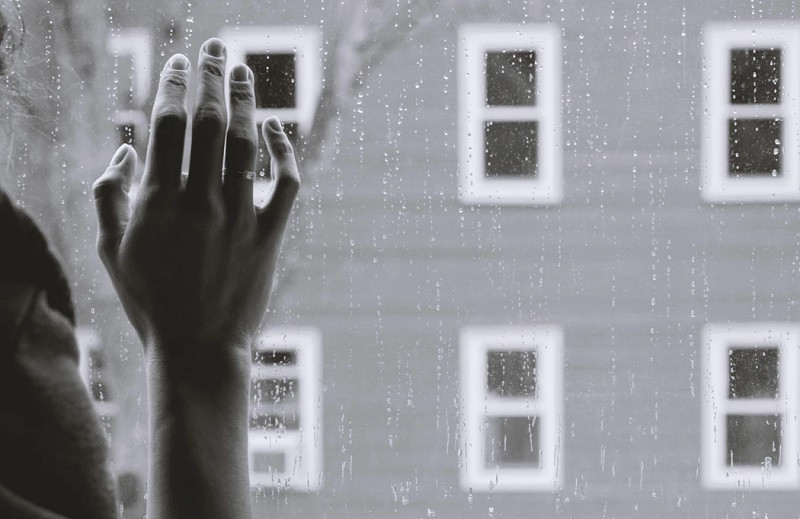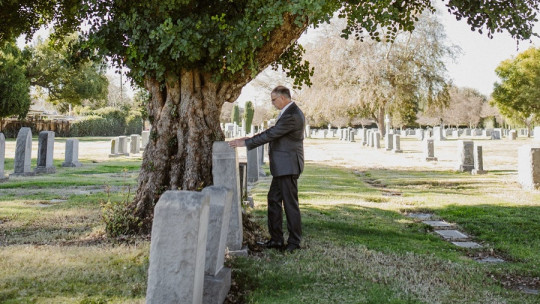
The human emotional spectrum is very broad. There are emotions that we experience as positive, while others we feel as negative, but they all have an adaptive function. They serve a purpose.
Although we have always been told that it is better to be happy than sad, the truth is that sadness is also useful when it occurs in certain situations.
Here Let’s take a deeper look at what sadness is for probably the worst viewed negative emotion of all.
What is sadness for in human beings?
Many of us have grown up with the idea that we should live happily 24/7, an idea that is still very much alive today. Traditionally, every negative emotion has been seen as something intrinsically bad, something to avoid at all costs, and the idea that we should always show our face has been promoted. This is easy to see by taking a look at social networks: parties, trips, great meals… there are many signs that in this artificial world such as the virtual one, everyone has perfectly happy lives.
But happiness is something rare. We all want to feel it, and it is normal for it to be that way, but we cannot pretend to be happy all the time nor do we think that our lives are terribly miserable because we are not happy all the time. People have many emotions, each one useful for different situations and all of them adaptive if shown in the appropriate contexts and sadness is no exception.
If we asked someone what sadness is for, they would surely respond with a resounding and emphatic “not at all.” He is partly right. Sadness helps us do nothing for a while. It makes us stop to think about what happened, what made us feel this way, how we could have avoided the unpleasant situation we just experienced and, if it was not possible to avoid it, at least it allows us to reflect and learn. her.
To better understand what sadness is for, we must reflect on when it appears. This is an emotion that usually arises when a significant loss process occurs. In this life we can lose many things, some of which are irrecoverable and their disappearance will leave us with a great void, especially the loss of a relationship. Losing someone, whether because they have died or because they have left our side, is always something painful, something that makes us sad.
Curiously, the sadness that appears when we lose someone also serves to attract other people to give us comfort. This emotion has a relational function, serving so that other people accompany us in hard times when they see that we need emotional support. In difficult times, people come together, trying to cheer up those who we see are sad and showing them that they are not alone, that we want them to be better. His sadness has served to strengthen his interpersonal relationships.
The functions of sadness
Although with these first paragraphs we have been understanding a little about what sadness is for, it is worth mentioning functions, all of them related to both the psychological well-being of the person who feels it and their social interactions.
1. Allows you to elaborate on the loss
On many occasions sadness appears in a context of mourning for the loss of something or someone. This loss, if poorly managed, can have long-term emotional consequences.
Feeling sadness after having experienced, for example, the death of a family member allows us to process the loss, in the sense that it makes us stop and think about that person who is no longer by our side, remember good times and helping us to get the idea that he will not return, but that his memory will always be there.
2. Facilitates introspection
Related to the previous point, sadness allows us to reflect on what has happened. That is, it facilitates introspection, analyzing the situation and drawing some positive points from what has happened. It helps us grow as people after experiencing something that we have felt has taken away or deprived us of something
Life is about learning and emotions give us many of them. It is difficult to find something in life that does not help us grow and improve as people, so, no matter how sad an event may be, we can always acquire a new experience from it.

3. Helps us feel better
It may even sound counterintuitive to say that sadness helps us feel better, but we have all really experienced it firsthand. In this life, as long as we have a healthy emotionality, there are ups and downs. After a fall there always comes a rise, an emotional increase that is more appreciated after having felt sad.
Furthermore, while it is true that being sad hurts us, it is also the emotion that allows us to release that pain. Once that negative emotion is released, We feel very calm, relieved, and with this it is as if we have recovered all the energy to be able to move forward
On the other hand, repressing sadness, despite the fact that many people try to do so, represents a loss of well-being. With this repression the only thing we achieve is to waste energy and feel pain that we cannot help but feel, but that we are not releasing and that sooner or later will hurt us even more.
4. Encourage social support
Although each culture manages sadness differently, it is common to find it in all of them. collective rituals to help a person who has just gone through a negative experience as important as the death of a loved one or a romantic breakup.
Sadness serves to unite the community, fostering social support. Whether we are a family member, friend or partner, when we see another person who shows signs of being sad it is inevitable that we approach them, try to comfort them and want to cheer them up. We want to show her that she has us for whatever she needs.
Empathy is a capacity that makes sense especially when sadness appears. As social animals that we human beings are, it would make no sense for us to have this ability and then ignore the sadness of others or consider it a bad thing to feel it.
Evolution predisposes us to pay attention to and accept sadness, not ignore or repress it Doing so distances us from others, whether we are the ones who are sad or a person we love.








